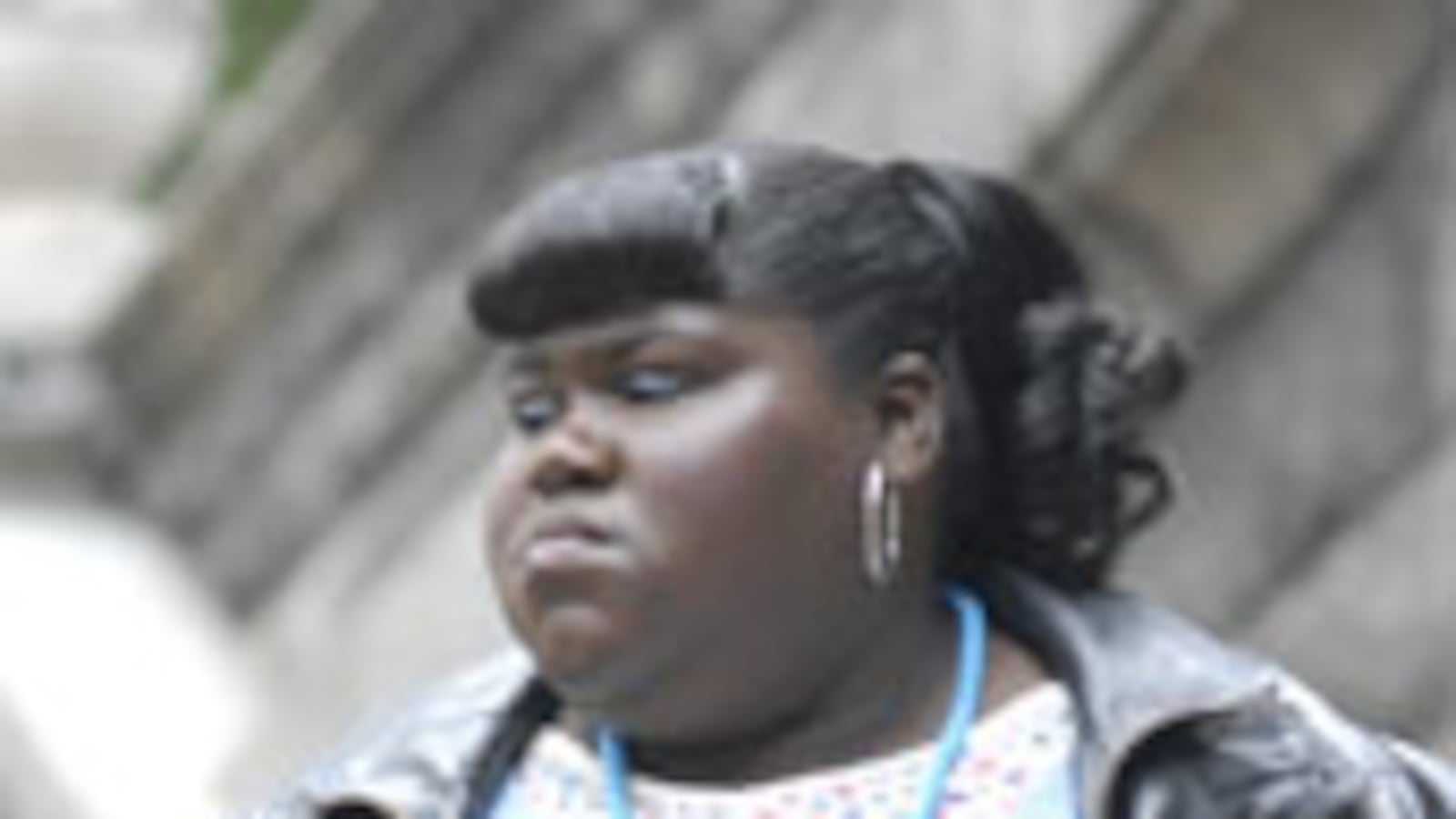
“The lesbians and the dreadlocks were here at seven—I think we’ve got a hit!”
It was nine in the morning, just minutes before a screening of Precious was set to begin at the Toronto Film Festival, and one of the film’s publicists was looking immensely relieved.
A film about a 350-pound, young black woman who’s abused, impregnated by her father (twice) and inflicted with AIDS, after all, was never going to be an easy sell.
Precious is best viewed in a crowded theater, where the audience’s gut-socking gasps and groans become a collective chorus and bonding exercise, so that by the time the lights go up, you want to grab whoever’s sitting next to you in a hug and say, “We made it.”
But just a few hours past dawn, an arty crowd equipped with lattes had, indeed, appeared to see a small film that gives the word “difficult” a whole new meaning and that has emerged as the Movie to See this awards season.
But festival audiences are one thing. The Academy—which is comprised of an older, stodgier bunch—is something else, and now the big question facing director Lee Daniels’ little movie is: does it have the stuff to go all the way on Oscar night?
Awards soothsayers in New York and Los Angeles—and The Daily Beast—say, resoundingly, yes. Even more than its raw brilliance and searing brutality, Precious, which introduces the world to the glorious Gabourey “Gabby” Sidibe and reintroduces Mariah Carey and comedienne Mo’Nique as they’ve never been seen before, does something that so many films try to, and so few actually do: genuinely surprises, shocks, and leaves you changed.
Precious—which is based on the novel Push by Sapphire—is best viewed in a crowded theater, where the audience’s gut-socking gasps and groans become a collective chorus and bonding exercise, so that by the time the lights go up, you want to grab whoever’s sitting next to you in a hug and say, “ We made it.”
Ironically, though, this may actually hurt its Oscar chances, seeing as most Academy members watch films in the comfort of their own screening rooms, where, when things get too uncomfortable or unpleasant, it’s easy to zap it all “Off.”
In other ways, too, Precious, is, almost by definition, anti-Oscar bait.
The film boasts no stars, save for Carey, who as a drab, dressed-down social worker, is recognizable only by her Long Island accent. Nor is there anything sweeping or epic or sunnily redemptive about the film, traits that the Academy has historically rewarded. Even Slumdog Millionaire was ultimately a feel-good film about love that kicked up its heels as the credits rolled and broke out into a Bollywood dance number.
• More Daily Beast coverage of PreciousPrecious also walks the unusual line of an outsider film with the endorsement of two very commercial figures—executive producers Oprah Winfrey and Tyler Perry—which undercuts its underdog, root-for-me status. Not helping in that department is Mo’Nique, who plays Mary, Precious’ very scary mother, and the stand-out performance in a film that’s full of them, who’s been noticeably absent during early stages of the Oscar campaign trail (reportedly demanding money for appearances.
Mo’Nique has claimed she’s been too busy promoting her new talk show, but the notion that an actress not stop the globe’s rotation in order to curry favor for a vote, is, frankly, sacrilegious in these parts. (Mo’Nique did talk to the New York Times Magazine for a recent cover story on Precious, and lately has been making herself more available for interviews, though she declined to talk for this story due to a scheduling conflict, according to her publicist.)
But Precious—Thank God—ultimately transcends the kind of prognosticating that has Hollywood obsessing from September through March. Pundits can place their bets, scrutinize the Academy’s past voting patterns, and calculate the weight that the actor’s branch is carrying this year, but in the end, Precious’ most ringing endorsement is that there is really only one thing to say about it: You just have to see it.
Nicole LaPorte is the senior West Coast correspondent for The Daily Beast. A former film reporter for Variety, she has also written for The New Yorker, the Los Angeles Times Magazine, The New York Times, The New York Observer, and W.






